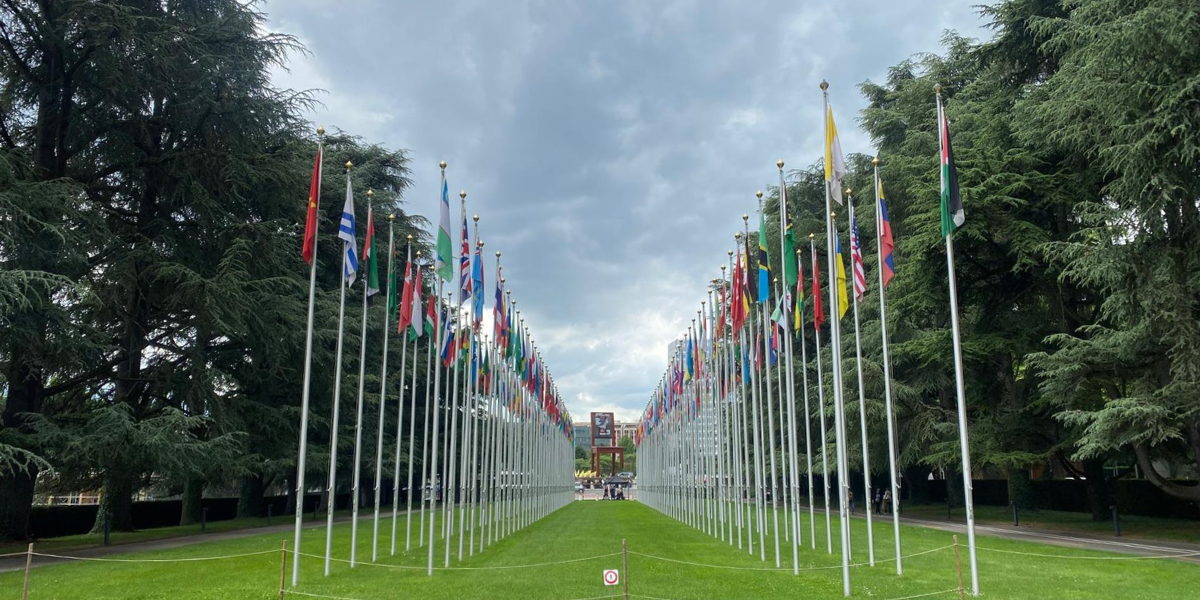Second and third intersessional thematic consultation of the United Nations Open-ended intergovernmental working group (OEIGWG) on transnational corporations and other business enterprises with respect to human rights.
Oral statements by CIDSE, Fastenaktion, DKA-Austria, Trócaire and Franciscans International.
In the run up to the 11th Session of the OEIGWG (20-24 October 2025), a series of four intersessional thematic consultations of the updated draft legally binding instrument (LBI) with textual proposals submitted by States during the ninth and tenth sessions of the OEIGWG has been recommended by the Chair-Rapporteur.
The second and third thematic consultations held in Geneva from 2 to 5 June, focused on:
- Article 6 (Prevention)
- Article 8 (Legal Liability)
- Article 9 (Juristiction)
- Article 10 (Statute of Limitation)
- Article 11 (Applicable Law)
A CIDSE delegation took part in these three-day consultations and presented four oral statements stressing the importance of creating clear and enforceable obligations for States to ensure human rights and environmental due diligence by companies.
Regarding legal liability, CIDSE advocated for the inclusion of a liability provision addressing harm across the entire value chain, irrespective of corporate structure. Additionally, CIDSE highlighted that a key benefit of the LBI is its alignment with national and regional regulations.
Significant instances of this alignment are found in issues related to competent jurisdiction (Article 9) and applicable law (Article 11), among others.
The oral statements were delivered by Susana Hernández, Corporate Regulation Officer at CIDSE, on behalf of the network, Fastenaktion, DKA Austria, Trócaire and Franciscans International, summarising her five interventions.
Next Steps:
On 5th June, the Chair Rapporteur shared the conclusions and decisions ahead of the 11th session. The OEIGWG will soon release the updated roadmap.
The intersessional consultation, scheduled for late August, has been cancelled, due to the ongoing UN financial liquidity crisis.
In mid-September, the Secretariat will share the report of the intersessions from April and June, which will contain some technical proposals on Articles 4 to 11. The report will also include some recommendation to overcome substantial differences. The proposals will be based on the input provided by States during the intersessions. States that couldn’t participate can still submit input by the end of June.
The methodology for the 11º session will consist of a reading of the report (Articles 4 to 11) during days 1 and 2. On days 3, 4 and 5, the Chair foresee a reading of Articles 12 to 24.
The intersessions of 2026 will focus on revising Articles 12 to 24. The methodology will be the same as that of 2025, meaning non-papers on the Articles will be released. States, International Organisations, and NGOs will be able to comment on them. The Secretariat will issue a report on those articles with technical proposals that will be read during the 12ºsession.
The legal experts will participate in the 11th and 12th sessions and during the 2026 intersessional consultations.
According to Resolution 56/116, the actions foreseen will conclude in 2027 (three years). It’s still not clear whether a new draft or final text will be submitted to States once this period is over.
The preamble and Articles 1 to 3 will be discussed at the end, once a common agreement has been reached on the rest of the text.
The OEIGWG will soon release the lastest version of the updated roadmap with the conclusions and decisions. For further information please review the OEIGWG website.
CIDSE contact: Susana Hernández Torres, Corporate Regulation Officer, CIDSE (hernandez(at)cidse.org)
Cover photo credit: CIDSE

